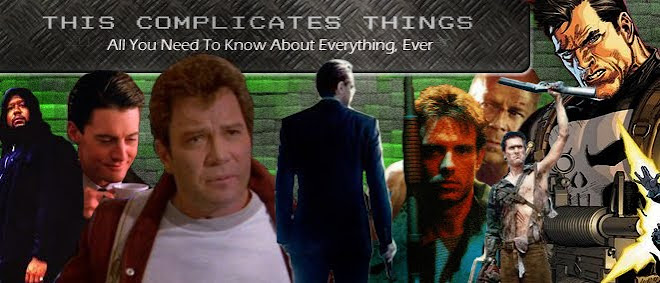ok so in class there had been a whole mention of Ridley Scott's masterpiece 'Blade Runner' so I thought that seeing as this was primarily a film blog before (and will be again) that I could do a little analysis of the film. Now I sorta talked in an earlier blog about technophobia in film and how especially in the genre of science fiction, we get very different views on how technology will affect humanity. Not just how it will affect us in our everyday function but how it will change what it means to be human. Or not change it, there's varying situations put forth in many different films.
'Blade Runner' though stands quite clear on the side of the argument that 'yes, technology will change humanity'. This is quite clear as the narrative constantly throws the out the question of "what is human and what is technology". In fact the title of Dick's book is that very question. Do androids dream of electric sheep? If they do what does this inherently mean? Does the ability to dream make us human or is the soul something that can be replicated in a computer.
Sean Redman puts forth an argument in the book "The Blade Runner Experience" that the film purposefully creates a binomial opposition between nature and technology or in more specific terms, Humans and Replicants. Stating that nature is banished from the visual style giving only the dark foggy streets of the city as an indicator of this. This style clearly indicates a dystopia that would seem to be a product of the technology that has been implicated in society.
But at the same time the film sits on the fence by constantly addressing that technology can be the same as nature, therefore adding a little bit of technophilia to the narrative. The sparkling lights and intoxicating feel of the same dark city show that it clearly is not all so gloomy.
It could be argued that the film warns of both the dangers and benefits of technology but ultimately does not show which is the greater. This is probably best seen in the ambiguity and heated debate over "Deckard's" true nature. The fact that this one key fact can still put in ambiguity plays to the ultimately ambiguous answer the film gives to the question. By the end we still don't know what is "human" and what is technology.
Though "Blade Runner" is not the only film to deal with these issues and in the next blog ill be tackling "Gattaca".
Sunday, October 24, 2010
Subscribe to:
Posts (Atom)

